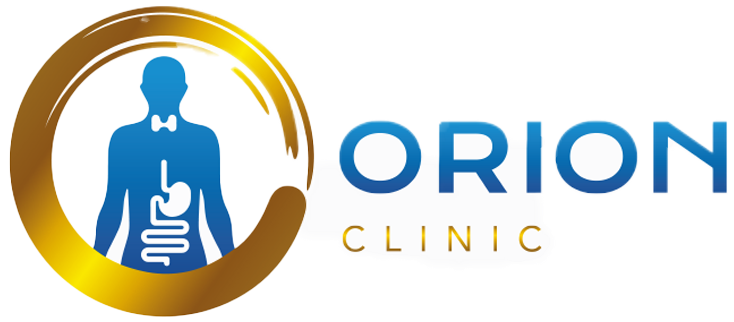Puberty-Related Problems
Puberty is a crucial developmental phase where children transition into adulthood, marked by physical, hormonal, and emotional changes. However, some children may experience puberty-related problems, such as early onset (precocious puberty), delayed puberty, or irregular progression of development. These issues can impact growth, emotional well-being, and long-term health if left unaddressed.
Dr. Darshna Thakur, an expert pediatric endocrinologist, specializes in diagnosing and managing puberty-related problems to ensure children and adolescents achieve a healthy and balanced transition through this critical stage of life.
What Are Puberty-Related Problems?
Puberty-related problems arise when the typical sequence and timing of puberty deviate from the norm. These can be classified as:
-Precocious Puberty
- Early onset of puberty before the age of 8 in girls and 9 in boys.
- Leads to early physical changes like breast development, growth of pubic hair, or a rapid growth spurt.
-Delayed Puberty
- Absence or delay of puberty signs beyond the age of 13 in girls and 14 in boys.
- May involve slow or no development of secondary sexual characteristics like breast development in girls or testicular enlargement in boys.
-Irregular Pubertal Progression
Incomplete or disrupted progression through the stages of puberty.
- Other Puberty-Related Concerns
- Menstrual irregularities in adolescent girls.
- Emotional and behavioral changes associated with hormonal shifts.
Symptoms and Signs of Puberty-Related Problems
-Symptoms of Precocious Puberty
- Early breast development or testicular enlargement.
- Rapid growth or early height gain but short stature in adulthood due to early closure of growth plates.
- Early menstrual periods in girls.
- Pubic or underarm hair development.
-Symptoms of Delayed Puberty
- Absence of breast development in girls by age 13.
- Absence of testicular enlargement in boys by age 14.
- Slowed growth or lack of a growth spurt.
- Lack of menstruation by age 16 in girls.
-Other Signs
- Emotional challenges such as anxiety, low self-esteem, or depression.
- Behavioral issues due to hormonal shifts.
Diagnosing Puberty-Related Problems
Dr. Darshna Thakur employs advanced diagnostic tools to identify and understand the root causes of puberty-related problems:
- Medical History and Physical Examination – Evaluating growth patterns and signs of puberty.
- Hormonal Testing – Measuring levels of sex hormones (estrogen, testosterone) and gonadotropins (LH, FSH).
- Bone Age X-Ray – Assessing bone maturity to predict growth potential.
- Imaging Tests – MRI or ultrasound to detect abnormalities in the brain or reproductive organs.
- Genetic Testing – Identifying inherited conditions that may delay or accelerate puberty.
Treatment Options for Puberty-Related Problems
The treatment approach depends on the type and cause of the puberty-related issue:
-For Precocious Puberty
- GnRH Analog Therapy: Medications to delay further progression of puberty until the appropriate age.
- Regular monitoring of growth and development.
-For Delayed Puberty
- Hormone Replacement Therapy: Administering sex hormones (estrogen for girls, testosterone for boys) to initiate puberty.
- Treating underlying medical conditions like hypothyroidism or nutritional deficiencies.
-For Menstrual Irregularities
- Medications to regulate hormonal balance.
- Lifestyle modifications, including improved diet and physical activity.
-Psychological Support
Emotional and behavioral counseling to address mental health challenges.
Managing Puberty-Related Problems at Home
Parents can support their children by:
- Monitoring Growth and Development: Regularly tracking height and signs of puberty.
- Encouraging Open Communication: Creating a safe space for children to discuss their feelings and concerns.
- Providing Balanced Nutrition: Ensuring a healthy diet to support physical development.
- Seeking Professional Help: Consulting an endocrinologist at the first signs of irregular puberty.
Why Choose Dr. Darshna Thakur?
Dr. Darshna Thakur provides compassionate and expert care for children and adolescents experiencing puberty-related problems. Her approach involves personalized treatment plans tailored to each child’s needs, ensuring a smooth and healthy transition through puberty.
FAQs
Early puberty, or precocious puberty, begins before age 8 in girls and age 9 in boys. It involves early signs like breast development or testicular enlargement.
Delayed puberty may result from:
- Family history of late bloomers.
- Chronic medical conditions (e.g., celiac disease, kidney disease).
- Hormonal imbalances or nutritional deficiencies.
- Genetic conditions affecting growth and development.
Signs of puberty-related problems include:
- Early or late development of secondary sexual characteristics.
- Irregular menstrual cycles in girls.
- Slowed or accelerated growth patterns.
- Emotional or behavioral changes out of proportion to normal adolescence.
Yes, early puberty can cause rapid growth initially, but growth plates may close prematurely, leading to a shorter adult height. Timely treatment can help manage this.
Delayed puberty is not always concerning, especially if there is a family history. However, it may indicate an underlying health issue that requires medical evaluation.
Treatment depends on the issue:
- Precocious Puberty: Medications to delay puberty.
- Delayed Puberty: Hormone replacement therapy.
- Irregular Puberty: Addressing underlying hormonal imbalances or medical conditions.
Yes, a family history of early or delayed puberty may increase the likelihood of similar issues in children.

